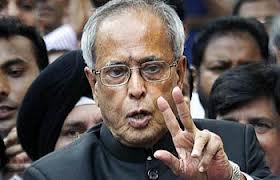
New Delhi, July 23: India's President elect Pranab Mukherjee has given his first interview to CNN-IBN after winning the President poll. Speaking to CNN-IBN Deputy Editor Sagarika Ghose, Pranab said he will study Parliament attack convict Afzal Guru's clemency plea, but won't comment on it before that.
"I can't comment on Afzal Guru until I have assumed office and gone through the issue," Pranab said. Pranab also said he was moved at the support he received, which is a mark of his many years in public life.
"I'm particularly happy that those who committed, particularly those who don't belong to our party scrupulously adhered to their commitment and voted for me. That doesn't normally happen. I consider this a great reward to my long stay in public life," Pranab said.
He also said that he was disturbed at the hatred between political parties. "The hatred between political parties bothers me," Pranab said.
Pranab Mukherjee said he will be everybody's President. speaking about his journey from Birbhum to the Raisina Hills, Pranab said, "It has been a long way from Mirati to Raisina. I was a very naughty child. I always got into trouble, didi always saved me."
Pranab Mukherjee is set to take oath as the 13th President of India on July 25 after he won the Presidential election against PA Sangma, getting 69 per cent votes.





Comments
Add new comment